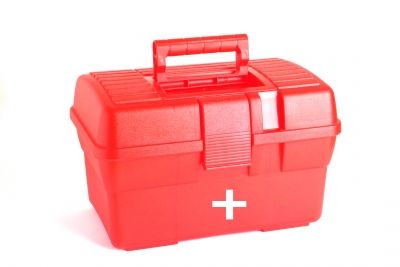Over-the-road trucking can be an appealing profession for those who enjoy leading a nomadic lifestyle. Travelling the countryside, living on the road, and being large independent of others – these are opportunities both adventurous and rewarding.
However, by the same token, the road can be difficult. Drivers typically spend long periods of time alone, with little form of amusement or respite. This makes equipping your sleeper cabin with some basic essentials all the more important. Granted, each driver has their own idea of what is ‘essential,’ but as a general guide, consider these top five items for your next over-the-road trip.
Snack-food and water
Whilst eating out at truck stops during your travels is convenient, it can also be expensive and not particularly healthy either. In this regard, packing your own snacks can save you money and prove to be a much healthier alternative. Consider items that are easy to prepare, reheat, and store within your cabin space. This includes foods such as sandwiches, salads, cereal, porridge, rice, and pre-packed goods you can eat on-the-go. Having snacks by your side also proves useful when you’re pressed for time or there are no stops nearby. Lastly, having water with you should be a no brainer, as this will help prevent dehydration during long journeys.
Truck stop guide
If travelling through populated areas, you can generally expect an abundance of places to restock and refuel. However, when out on the open road, you could potentially travel for hours without encountering a truck stop. This makes having a reliable guide all the more important. With a guide, you can plan out your journey so you know when and where is best to stop, and ensure you never become stranded without food or fuel.
Warm bedding and clothes
While items to keep your warm might not be as vital in traveling across Australia, you can still expect open desert roads to reach low temperatures as night. This is because dry desert air holds little moisture, which means it cools quickly once the sun sets (especially in winter). In this regard, endeavour to pack extra bedding for when those temperatures inevitably drop, as well as warmer clothing if you need to exit your cabin to hook up or disconnect your trailer.
A tablet device
Lets face it. Other than your cabin’s radio, there’s little to keep you occupied whilst living a life on the road. The benefit of a tablet, then, is it encompasses a wide range of entertainment features all within a single device. This includes movies to watch, music to listen to, and e-books to read. Likewise, you can leverage public wi-fi, or you own wi-fi hotspot, to surf the web and keep up to date with the rest of the world. A tablet can also serve more practical uses too; you can combine your tablet with a dashboard mount for GPS navigation, or install a relevant app to track your diving, locate trucks stops and services, plan your trip, and more.
Emergency kit
Any workplace should have an emergency kit – even ones your drive and live in. When on the road alone and for long hours, it never hurts to be prepared. An emergency kit can be a life saver in the event you break down, suffer a collision, or fall sick. Likewise, it’s impossible to predict when untimely incidents occur, so an emergency kit becomes all the more imperative if something happens while you’re a long way out from assistance. Be sure to include some basic items such as a flash-light, batteries and jumper cables for vehicular emergencies, as well as bandages, band-aids, gloves, etc. to prepare against medical emergencies.
Have essentials of your own you’d like to share? Sound off in the comments below!


